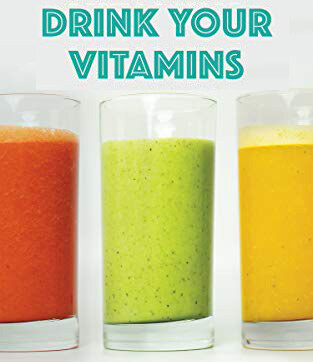| More and more people are turning to healthy drinks as an alternative to healthy eating, and scientific findings are only encouraging the trend |
It wasn’t too long ago that beverages in the grocery store were sodas, sugary “fruit” drinks, and juices made from concentrate. But as Americans have grown more concerned with healthy eating, the drink cases have exploded with healthier options. More and more people are turning to health drinks as an alternative, and scientific findings are only encouraging the trend. Regardless of your palette, there’s a healthy beverage out there for you and a way to drink your vitamins.
THE DANGERS OF SODA
According to Barry Popkin, Ph.D., and director of the university of North Carolina Interdisciplinary Obesity Program, consumers sometimes overlook the risks inherent in cans of soda. “Many People either forget or don’t realize how many extra calories they consume in what they drink,” Popkin states, “yet beverages are a major contributor to the alarming increase in obesity.” Soda, which is little more than water, sugar, and acid, is the textbook example of empty calories. According to a study from the American Journal of Preventive Medicine, beverages make up 21 percent of the total daily calories taken in by Americans over the age of 2 – an alarming statistic.
With seemingly infinite advertising budget, soft drink manufacturers don’t make it easy to avoid these beverages and you don’t drink vitamins. Products like Hawaiian Punch label themselves as “fruit drinks,” but they usually contain little more than a tiny fraction of juice and little to no vitamins. Luckily, shoppers are wising up to the risks in these bottles.
If you’re trying to ween yourself off soda, switching to diet is a good option. While many claim that aspartame (the sweetener in most diet sodas) is worse for you than high fructose corn syrup, most scientists disagree. Try replacing one soda a day with diet, and gradually decreasing the number of sugared sodas you drink from there.
THE JUICE REVOLUTION
Everyone knows that fruits and vegetables provide huge health benefits and are great way to drink vitamins, but not everyone has the time to prepare whole foods daily. Enter the juicing phenomenon. The Centers for Disease Control and Prevention (CDC) found the benefits of a diet high in nutrient-packed produce reduces the risk of cancer, heart disease, and weight issues, including diabetes. With so many positives, it’s no wonder people are seeking out the most efficient way to get these foods into their diets.
Because cooking vegetables can break down many micronutrients, juicing allows you to get the maximum impact from produce. Cold-press juicers, like those made by industry leader Breville, extract juice by first crushing and then pressing fruits and vegetables. Not only does this process preserve nutritional intake, but it also produces higher yields, giving you more bang for your buck. These machines can also press nuts like almonds and cashews into healthy milk alternatives for those who eschew dairy.
If you prefer to buy your juice in bottle form, it’s important to know what to look for at the grocery store. Juices from concentrate are the least healthy, as they undergo the most processing. Look for juices that contain vegetables as well as fruits. Don’t be put off by a juice just because it’s green, as you’ll be surprised at just how delicious it can be. Leafy greens like kale and spinach add a vitamin wallop to a drink without contributing much to the flavor profile. Companies like BluePrint specialize in juices that taste great and deliver on the promise of the juice revolution.
KOMBUCHA: THE ANCIENT BEVERAGE ON THE RISE
With ever-increasing popularity of kombucha, you’d be forgiven for thinking it’s a modern product. In fact, it’s been around for thousands of years, dating to Han Dynasty-era China. Kombucha is a fermented beverage containing active cultures and tea leaves. Due to its fermentation, it contains trace amounts of alcohol, but you’d have to drink a barrel of it to even feel a buzz.
The start culture for kombucha is a symbiotic colony of bacteria and yeast (known as a SCOBY). Like yogurt, kombucha is a probiotic, promoting gut health and digestion. Registered dietitian Wendy Bazilian notes that it also “contains phytochemicals and phytonutrients that have antimicrobial and antioxidant properties.” When picking a brand, try to avoid those with high added sugar levels. Bazilian suggests you “aim for kombucha with 5 grams of sugar or less per serving.”
Drink up
With so many healthy, delicious options available on a wide scale these days, you no longer have to settle. You should drink plenty of water, but don’t discount the array of health beverages that will only get more popular in the coming years.


